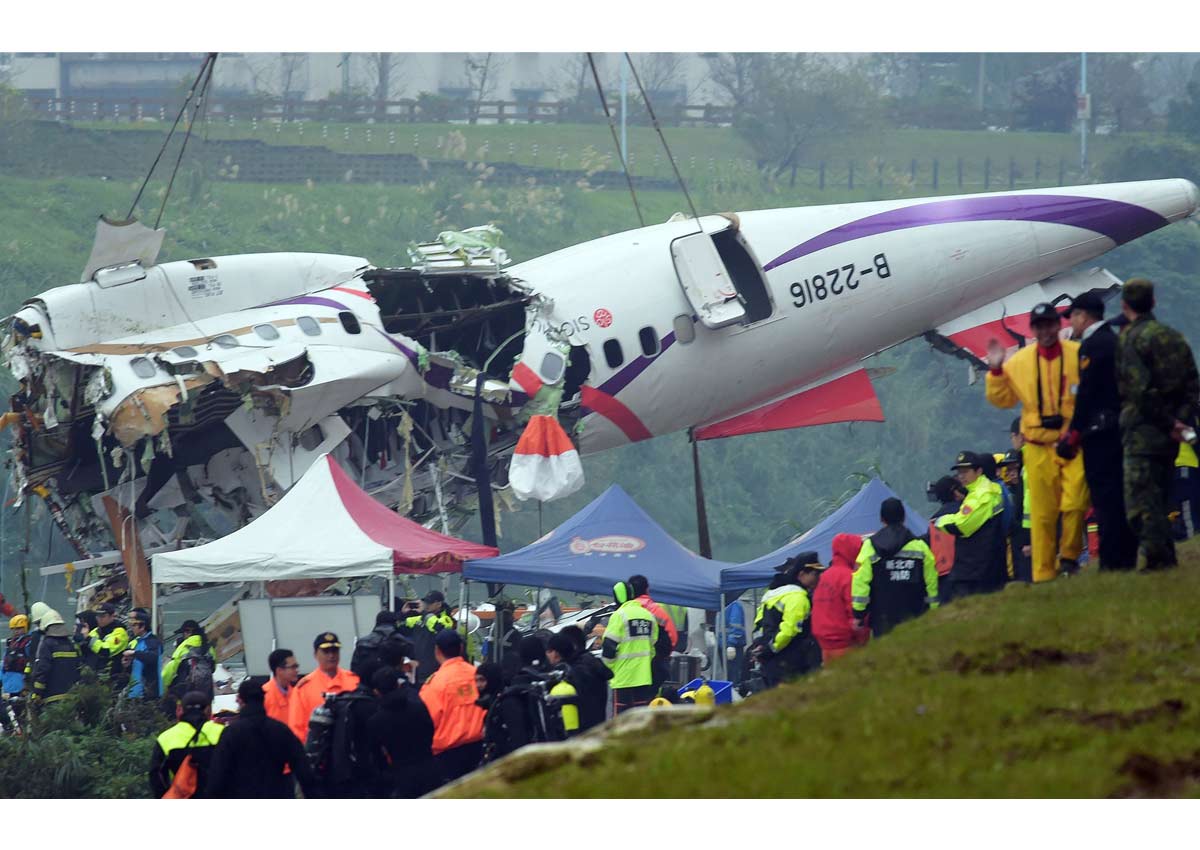TAIPEI, Taiwan — Human error was the main cause of last year’s TransAsia Airways crash, an Aviation Safety Council (ASC) investigation has concluded.
The investigation report, which was released Thursday, also showed that a problem occurred in the plane’s second engine shortly after takeoff. Pilot Liao Chien-tsung attempted to restart the second engine but mistakenly shut off the first engine, sending the plane down, according to the report.
The ASC cited a faulty autofeather unit as the probable cause of the second engine’s malfunction. ASC officials said they asked engine-maker Pratt & Whitney Canada Corp. and aircraft manufacturer ATR to evaluate the risks posed by the PW127 aircraft engine’s autofeather unit.
The findings confirm suspicions shortly after the incident that the pilot had restarted the wrong engine.
Liao, who died in the crash, was lauded as a hero for saving countless lives by manoeuvring the rapidly descending plane away from the densely populated Neihu District into the river.
Flight GE235 had been heading from Taipei’s Songshan airport to Kinmen, but crashed into the Keelung River shortly after takeoff on Feb. 4, 2015. Forty-three people died and 15 were injured in the crash.
TransAsia Airways Chairman Vincent Lin said he respected the investigation’s findings and will continue improving the airline’s flight safety.
According to the airline, it has settled disputes with 70 per cent of the deceased victims’ families, offering nearly NT$15 million in compensation for each loss of life. Lin said TransAsia agains offers its deepest apologies, and said it is thanks to the understanding and forgiveness of the family members that settlement agreements have been reached with most of the families.
Lin vowed to continue in upholding the highest standards, with safety as the highest priority.
“We hope to show the public that we have strong determination to maintain flight safety. Zero tolerance and zero compromise (on safety issues).”
CAA Urged to Step Up Their Monitoring Game
In the report, the ASC called out the Civil Aeronautics Administration (CAA) for failing to sufficiently monitor TransAsia Airways’ operations, particularly since the airline’s Flight GE222 had just crashed in the outlying Penghu Islands seven months prior.
The incident occurred despite the CAA having assessed TransAsia after the Penghu crash, which showed the administration had not effectively monitored and identified safety risks at the airline, said ASC officials.
According to local media, the CAA responded that it has demanded TransAsia carry out health checks to ensure pilots and cabin crew are not overworked, set up a comprehensive safety management system, and reassess annual pilot training and tests.
CAA officials said TransAsia has made improvements in all 67 areas international flight safety experts previously advised, and would continue to carefully monitor airline safety.























































